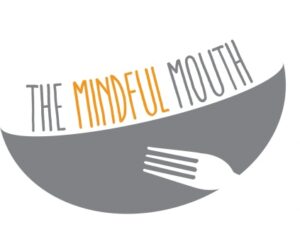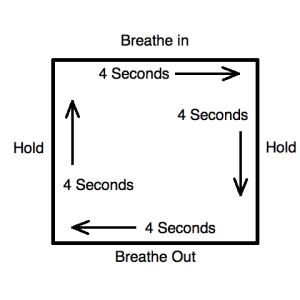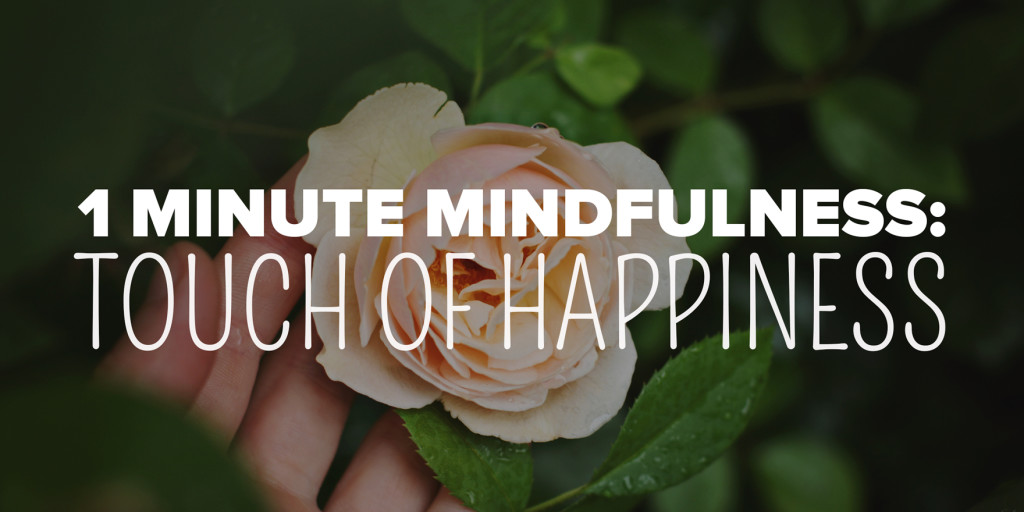Mindfulness has been shown to have a lot of mental health benefits such as reducing stress and anxiety. But who has time for long, drawn-out mindfulness exercises? Not many people. This is why these 1-minute mindfulness exercises are perfect for anyone who wants to reap the benefits of mindfulness, but doesn’t have a lot of time on their hands!
Contents
- 1 What Is Mindfulness?
- 2 What Are 1 Minute Mindfulness Exercises?
- 3 Benefits Of 1 Minute Mindfulness Exercises
- 3.1 Reduced stress and anxiety
- 3.2 Improved focus and concentration
- 3.3 Reduced negative emotions
- 3.4 Better sleep quality
- 3.5 Improved immune function
- 3.6 Greater feelings of happiness and well-being
- 3.7 Are very convenient
- 3.8 Can be done anywhere
- 3.9 Do not require any special equipment or training
- 3.10 Are a great way to get started
- 3.11 Are a great way to reduce stress
- 3.12 Can improve your happiness and well-being
- 4 Diseases That 1 Minute Mindfulness Exercises Helps With
- 5 Conclusion
- 6 A Word From Therapy Mantra
What Is Mindfulness?

Mindfulness is the act of being present in the moment. When you’re mindfully living, you’re not worrying about the past or the future, you’re just focusing on what’s happening right now. This can be really beneficial for your mental health, as it helps to reduce stress and anxiety.
There are a lot of different ways to practice mindfulness, but one of the easiest is through short, 1-minute exercises. These exercises can be done anywhere, at any time, and they’re a great way to get started with mindfulness if you’re new to it.
What Are 1 Minute Mindfulness Exercises?

There are a lot of different 1-minute mindfulness exercises that you can try, but here are a few of my favorites:
1. Focused Breathing
Sit or stand with your spine straight, and close your eyes. Inhale deeply, and focus on the feeling of the air entering your lungs. Hold your breath for a few seconds, and then exhale slowly. Repeat this exercise a few times.
2. Body Scan
Start by standing or sitting with your feet hip-width apart. Close your eyes and take a few deep breaths in and out. On your next inhalation, focus on bringing awareness to your toes. As you exhale, imagine all the tension leaving your body. Move up to your feet, calves, thighs, hips, abdomen, chest, and arms. Finally, focus on your head and neck. Breathe in and out slowly, and imagine all the stress leaving your body.
3. Gratitude List
This is a great exercise to do at the end of the day. Sit or stand with your spine straight, and close your eyes. Inhale deeply, and focus on the feeling of the air entering your lungs. As you exhale, say “thank you” to yourself. Take a few deep breaths, and then list off 5 things that you’re grateful for. It can be anything from your family to your good health to your happy memories.
4. The Mindful Mouth

This exercise is a great way to focus on your breath and connect with your body. Sit or stand with your spine straight, and close your eyes. Inhale deeply, and focus on the feeling of the air entering your lungs. As you exhale, say “ah” out loud. Repeat this exercise a few times.
5. The Waterfall
This is another great exercise to do when you’re feeling stressed or anxious. Sit or stand with your spine straight, and close your eyes. Inhale deeply, and focus on the feeling of the air entering your lungs. As you exhale, imagine all the stress and anxiety flowing out of your body like a waterfall. Repeat this exercise a few times.
6. The Tree
This is a great exercise to do when you’re feeling overwhelmed or stressed. Sit or stand with your spine straight, and close your eyes. Inhale deeply, and focus on the feeling of the air entering your lungs. As you exhale, imagine yourself as a tree. Feel the strong roots going into the ground, feel the leaves and branches reaching up to the sky, and feel the stability and strength of the tree. Hold this image for a few minutes, and then imagine all the stress and anxiety flowing out of your body like water.
7. The Bell
This is a great exercise to do when you need to focus or concentrate. Sit or stand with your spine straight, and close your eyes. Inhale deeply, and focus on the feeling of the air entering your lungs. As you exhale, imagine a bell ringing in your mind. Hear the sound of the bell ringing clearly and loudly, and feel the vibrations going through your body. Repeat this exercise a few times.
8. The Candle
To do the candle meditation, all you need is a candle and some quiet space where you can sit comfortably. Sit down in front of the candle, and take a few deep breaths to center yourself. Then, focus your attention on the flame of the candle.
Watch the flame as it dances and flickers, and simply allow yourself to be absorbed at the moment. Notice how the flame changes and evolves, and let your mind be at peace with whatever thoughts or feelings come up.
When you’re finished, take a few more deep breaths and give yourself a few moments to relax before standing up.
9. Box breathing

This is another simple mindfulness exercise that can be done anywhere, anytime. Simply sit or stand in a comfortable position, and inhale for 4 seconds, hold your breath for 4 seconds, exhale for 4 seconds, and hold your breath for 4 seconds.
Do this cycle 3-5 times to help you focus and calm down.
10. Progressive muscle relaxation
This is a great exercise to do before bed, as it helps to relax your body and prepare you for sleep. To do progressive muscle relaxation, start by tensing each of your muscles for a few seconds, then releasing the tension.
Work your way through all of your muscles, starting with your feet and going up to your head. Take your time and focus on releasing all of the tension from each muscle. When you’re finished, spend a few minutes relaxing in silence.
11. Imagine Yourself at a serene place
This is a great exercise to do when you’re feeling overwhelmed or stressed. Simply imagine yourself walking through a door into a calm and peaceful place.
The place can be anything you like – a beach, a forest, etc. – and take a few minutes to imagine yourself there. Focus on the peace and tranquility of the space, and allow yourself to relax and de-stress.
12. Entering a new space
This is another great exercise to do when you’re feeling stressed or overwhelmed. Imagine that you’re walking into a new space, one that is calm and peaceful.
Take a few minutes to imagine yourself in this space, and focus on the positive feelings it evokes. Allow yourself to relax and de-stress, and take a few deep breaths to center yourself.
Mindfulness can be a great way to reduce stress and anxiety, and these 1-minute exercises are a great way to get started. If you’re new to mindfulness, try out a few different exercises until you find one that works best for you. And remember to be grateful for the good things in your life!
Benefits Of 1 Minute Mindfulness Exercises

Mindfulness has been shown to offer a number of benefits, including:
Reduced stress and anxiety
Reduced stress and anxiety are probably the most commonly cited benefits of mindfulness and with good reason. Mindfulness can help you to recognize when you’re feeling overwhelmed or stressed and provides a number of tools to help you deal with those feelings.
Improved focus and concentration
Improved focus and concentration are other common benefit of mindfulness. By learning to focus your attention on the present moment, you can improve your ability to stay task-oriented and ignore distractions.
Reduced negative emotions
Mindfulness can help you to become more aware of your thoughts and emotions, which in turn can help you to reduce negative emotional states like anger, anxiety, and depression.
Better sleep quality
Improved sleep quality is another common benefit of mindfulness. People who practice mindfulness tend to have better sleep habits, fall asleep more quickly, and experience less insomnia.
Improved immune function
There is some evidence that mindfulness may also improve immune function. One study showed that people who practiced mindfulness had increased levels of antibodies compared to those who did not practice mindfulness.
Greater feelings of happiness and well-being

Finally, mindfulness is also associated with greater feelings of happiness and well-being. People who practice mindfulness tend to have more positive thoughts and emotions and are more resilient to stress.
If you’re looking for a way to reduce stress and anxiety, improve your focus and concentration, or simply increase your happiness and well-being, mindfulness may be the answer.
Are very convenient
1 minute mindfulness exercises are very convenient . They can be done anywhere, at any time, and do not require any special equipment or training.
Can be done anywhere
1 minute mindfulness exercises can be done anywhere. This makes them a great option for people who are short on time or who travel frequently.
Do not require any special equipment or training
1 minute mindfulness exercises do not require any special equipment or training. This makes them a great option for people who are new to mindfulness or who are not interested in doing a longer, more formal meditation practice.
Are a great way to get started

If you’re new to mindfulness, 1 minute mindfulness exercises are a great way to get started. These exercises can help you to learn the basics of mindfulness and how to apply it to your everyday life.
Are a great way to reduce stress
If you’re looking for a way to reduce stress, 1 minute mindfulness exercises may be the answer. These exercises can help you to recognize when you’re feeling overwhelmed or stressed and provide a number of tools to help you deal with those feelings.
Can improve your happiness and well-being
Finally, 1 minute mindfulness exercises can also help to increase your happiness and well-being. People who practice mindfulness tend to have more positive thoughts and emotions and are more resilient to stress.
So there you have it: a few good reasons to try out 1-minute mindfulness exercises! If you’re looking for a way to reduce stress and anxiety, improve your focus and concentration, or simply increase your happiness and well-being, mindfulness may be the answer.
These are just a few of the many benefits of mindfulness, and it’s a practice that can be beneficial for people of all ages. If you’re looking for a way to reduce stress and anxiety, mindfulness may be the answer. Give it a try!
Diseases That 1 Minute Mindfulness Exercises Helps With
Mindfulness has been shown to help with a variety of diseases and conditions, including:

- Stress
- Anxiety
- Depression
- Insomnia
- Chronic pain
- Crohn’s disease
- Irritable bowel syndrome (IBS)
Mindfulness may also help to improve immune function and increase feelings of happiness and well-being. If you’re looking for a way to reduce stress and anxiety, improve your focus and concentration, or simply increase your happiness and well-being, mindfulness may be the answer.
Conclusion
Mindfulness exercises can help improve focus, memory, and cognitive function. They only take a minute to do and can be done anywhere. In this article, we’ve provided five different mindfulness exercises that you can try. If you find these helpful, be sure to explore other mindfulness practices like meditation or yoga. What was your favorite 1-minute mindfulness exercise?
A Word From Therapy Mantra
Your mental health — Your psychological, emotional, and social well-being — has an impact on every aspect of your life. Positive mental health essentially allows you to effectively deal with life’s everyday challenges.
At Therapy Mantra, we have a team of therapists who provide affordable online therapy to assist you with issues such as depression, anxiety, stress, workplace Issues, addiction, relationship, OCD, LGBTQ, and PTSD. You can book a free therapy or download our free Android or iOS app.


